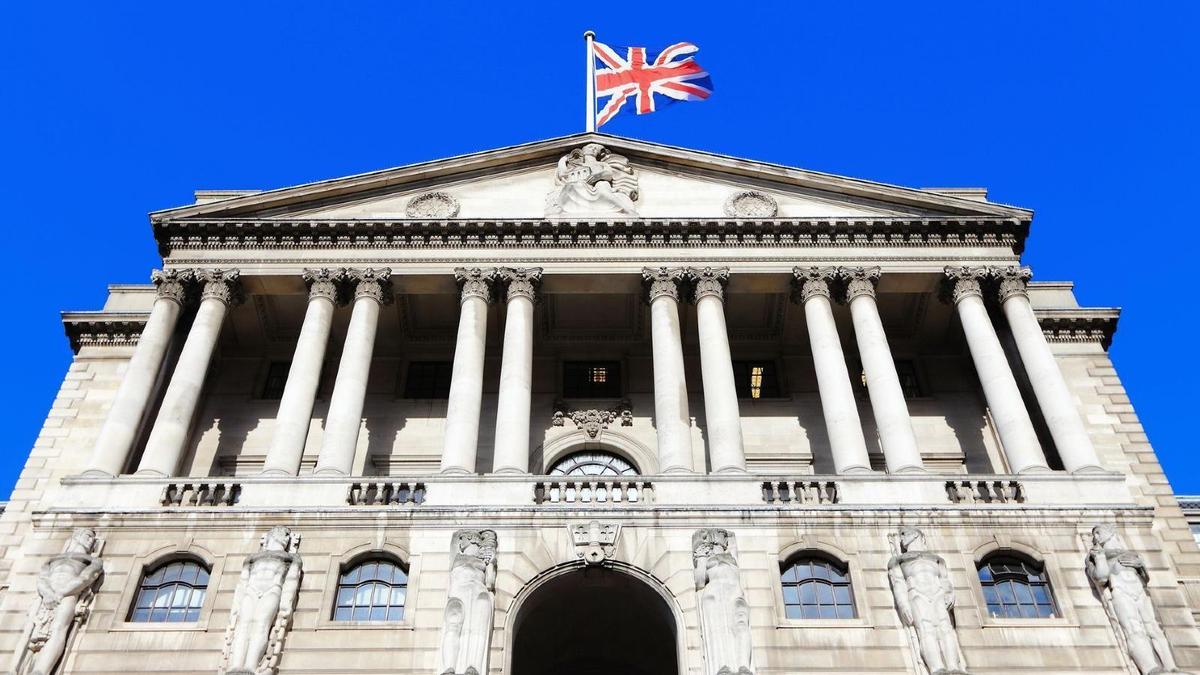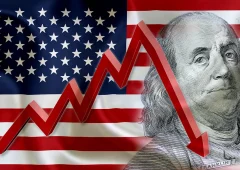Bank of England Cuts Interest Rates for First Time Since Pandemic
01.08.2024 15:44 1 min. read Alexander Stefanov
The Bank of England has lowered interest rates for the first time since the onset of the pandemic, reducing the base rate to 5%.
This marks a shift from a year of steady rates, decided by a close vote within the central bank’s policy committee.
Governor Andrew Bailey, casting the deciding vote, indicated that easing inflationary pressures prompted the cut. Despite this, he cautioned against expecting further significant reductions soon.
The decision comes as the UK faces ongoing cost-of-living challenges and follows a recent drop in inflation to the Bank’s 2% target. The pound weakened against major currencies after the announcement.
The Bank’s forecast suggests inflation might briefly exceed 2% but is expected to fall back to around 1.7% in two years. Economic growth has recently surpassed expectations, although the Bank anticipates a slower rate in the near future.
The central bank emphasized that, despite this rate cut, monetary policy will remain restrictive to ensure inflation control and economic stability.
-
1
Gold Beats U.S. Stock Market Over 25 Years, Even With Dividends Included
13.07.2025 15:00 1 min. read -
2
US Inflation Heats Up in June, Fueling Uncertainty Around Fed Cuts
15.07.2025 16:15 2 min. read -
3
U.S. Announces Sweeping New Tariffs on 30+ Countries
12.07.2025 16:30 2 min. read -
4
Key U.S. Economic Events to Watch Next Week
06.07.2025 19:00 2 min. read
US Inflation Heats Up in June, Fueling Uncertainty Around Fed Cuts
U.S. inflation accelerated in June, dealing a potential setback to expectations of imminent Federal Reserve rate cuts.
Gold Beats U.S. Stock Market Over 25 Years, Even With Dividends Included
In a surprising long-term performance shift, gold has officially outpaced the U.S. stock market over the past 25 years—dividends included.
U.S. Announces Sweeping New Tariffs on 30+ Countries
The United States has rolled out a broad set of new import tariffs this week, targeting over 30 countries and economic blocs in a sharp escalation of its trade protection measures, according to list from WatcherGuru.
Key U.S. Economic Events to Watch Next Week
After a week of record-setting gains in U.S. markets, investors are shifting focus to a quieter yet crucial stretch of macroeconomic developments.
-
1
Gold Beats U.S. Stock Market Over 25 Years, Even With Dividends Included
13.07.2025 15:00 1 min. read -
2
US Inflation Heats Up in June, Fueling Uncertainty Around Fed Cuts
15.07.2025 16:15 2 min. read -
3
U.S. Announces Sweeping New Tariffs on 30+ Countries
12.07.2025 16:30 2 min. read -
4
Key U.S. Economic Events to Watch Next Week
06.07.2025 19:00 2 min. read


